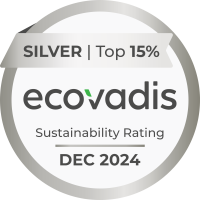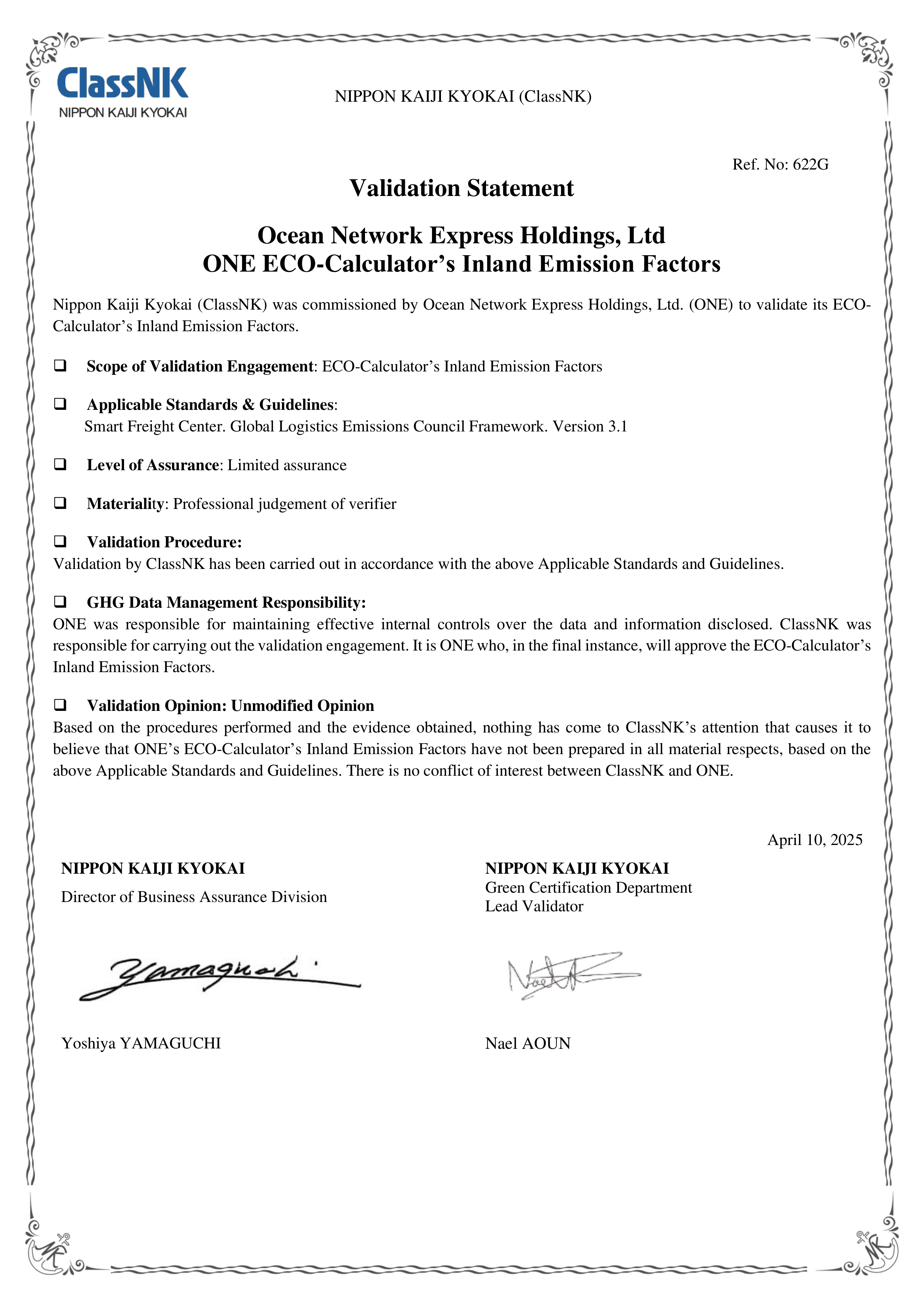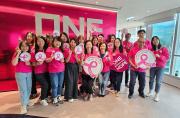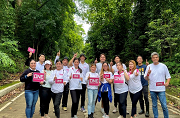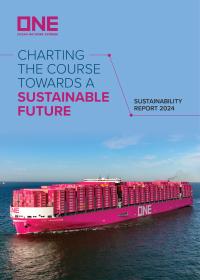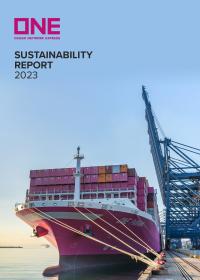- GREEN STRATEGY
- Sustainable Shipping Solutions
- SOCIAL
- GOVERNANCE
- OPERATIONAL EXCELLENCE
- SUSTAINABILITY REPORTS
MESSAGE FROM MANAGEMENT
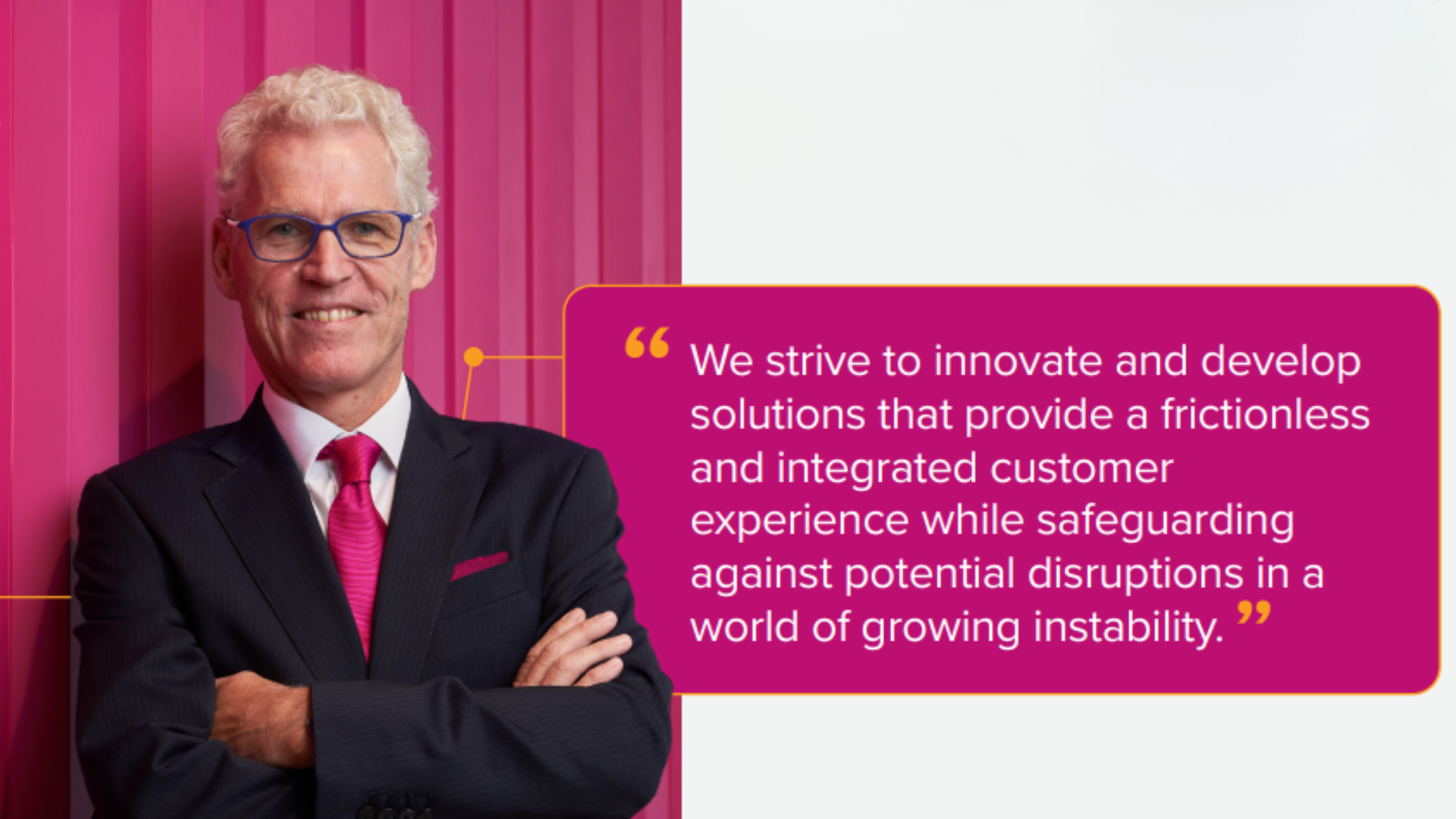
Dear Stakeholders,
Welcome to ONE’s seventh annual sustainability report.
2023 has been another challenging yet fruitful year for ONE. As a global maritime leader, ONE operates in an increasingly complex and dynamic landscape defined by geopolitical instabilities, a volatile market, and the urgent need to address the growing implications of climate change.
As we navigate these unpredictable waters, we remain committed to upholding exemplary corporate governance and ethical business practices, delivering efficient and reliable services for our customers while mitigating the environmental impacts of our operations, fostering innovation and collaboration to address industry-wide sustainability challenges, and ensuring we have the best talent for these critical endeavours.
Achieving success and purpose goes beyond maximising short-term returns for ONE. As a responsible and forward-thinking organisation, we seek to create sustainable long term value for all stakeholders and to build resilience in the business and industry. We are proud of the progress we have made to advance our sustainability agenda despite the challenges. This report presents a snapshot of our performance in the past year.
Operational Excellence through Innovation, Efficiency and Reliability
Our relentless pursuit of operational excellence from the outset has been ONE’s unique value driver. Our focus is on the safe, efficient and reliable transportation of goods for our customers. We strive to innovate and develop solutions that provide a frictionless and integrated customer experience while safeguarding against potential disruptions in a world of growing instability.
ONE’s digitalisation roadmap has guided us in building new digital capabilities in our quest to become a data-driven enterprise. Building on our previous successes, we have embarked on a journey to transform our internal and external system architectures. In 2023, we introduced our cloud-first infrastructure policy, shifting our critical systems to the cloud, increasing resilience against system failure and cyberthreats while improving energy efficiency. We are also actively forging partnerships to drive an industry-wide shift towards digitalisation. As a founding member of SGTraDex, an interoperable common digital infrastructure, we encourage the increased adoption of standardised information flows and visibility, which can greatly benefit all stakeholders within the industry.
We hope to leverage our collective expertise and resources to champion transformative solutions that will shape the future of our industry.
Shaping the Future toward Net Zero
The maritime industry has already begun to face the severe impacts of climate change through extreme weather leading to port damage, loss of cargo and shipping delays. Addressing climate change would be a monumental effort with the critical transition towards sustainable shipping. We have made the commitment to achieve net zero emissions by 2050, with interim targets detailed through our Green Strategy and Decarbonisation Roadmap, prioritising five key areas: carbon management, operational efficiency, green investment, alternative fuels and ecosystem building.
To achieve our decarbonisation goals, we recognise the need to take immediate action even as we work on long-term solutions. These initiatives focus on improving operational and fleet fuel efficiencies through vessel modifications such as the bulbous bow and bow windshield, as well as the optimisation of auxiliary machinery operations directly leading to emissions reductions.
In 2023, we have obtained the Approval In-Principle (AiP) to construct Ammonia Dual-fuelled vessels along with an investment in 13,000 TEU methanol dual-fuelled vessels as part of our commitment to invest in greener assets and technologies. Through this, as well as our participation in the GCMD-led ammonia bunkering pilot safety study, we seek to accelerate the search for a viable alternative maritime fuel. We also continue to participate in industry-wide collaborations towards decarbonisation as co-chair of the World Shipping Council and participating in initiatives such as the Port of Los Angeles-Port of Shanghai Green Shipping Corridor.
Our People-Centred Strategy
People are at the centre of all we do at ONE. As a key driver of ONE’s strategy now and in the future, we invest in our people and their overall wellbeing. The launch of ONE Academy in 2022 has been an immense success providing the avenues and support structures needed to tailor career progression and learning opportunities for all employees at ONE. We continue to progressively enhance our programmes with employee feedback to provide wide ranging and exciting opportunities for development and exposure.
We also seek to contribute to the causes and communities our people are passionate about and defend the human and labour rights of all individuals. Where we operate, we empower our employees to give back to the local communities in ways ONE can best contribute. From environmental preservation to providing aid to vulnerable communities, I am heartened by the various initiatives, volunteering and donations across our offices. Amongst many others, an initiative I am particularly proud of is Project Maji. In Ghana and Kenya, ONE has funded sustainable water solutions such as convenient water dispensing systems, using rapid sand filtration and the installation of water kiosks for rural schools. These solutions have benefitted over 7,500 people, improving access to clean water for the local communities.
Beyond our immediate workforce, ONE has made efforts to support frontline ship crew. This is also part of our commitment to uphold universal principles on human and labour rights throughout our supply chain, and what we regard as a fundamental aspect of being a responsible business.
ESG Excellence through Effective Governance
Our sustainability strategy is grounded in robust governance structures and principles. Beyond compliance, ONE’s approach to conducting business focuses on an uncompromising stance to always “do the right thing”. We continue to uphold our zero-tolerance stance against bribery, corruption or any form of anti-trust and anti-competitive activity by undertaking appropriate compliance and risk management processes. This extends to the management of cybersecurity as we become increasingly reliant on digitalisation.
In 2023, we took a significant step to align our sustainability reporting with our financial year (FY), from a calendar year (CY) basis for the past six years. As the integration of sustainability and business operations continues to evolve, this will enable ONE to harmonise our strategic planning and foster integrated decision-making. As new sustainability reporting regulations continue to emerge, ONE strives to provide greater transparency and comparability of our disclosures to stakeholders, ensuring that ONE remains accountable to deliver on our sustainability strategy.
Realising our Sustainability Vision
As we steer towards the future of a more sustainable maritime industry, we must remain steadfast in our commitment and conviction even as we enter uncharted waters. The progress that we have made so far would not be possible without the efforts of our dedicated employees, and the trusted partnerships with our partners, suppliers and customers. We would like to thank all our stakeholders for your continued support. In the pursuit of a greener horizon, we will continue to seek and foster meaningful collaborations to drive change. I hope we can all work together to chart the course for a sustainable future.
Sincerely,
Jeremy Nixon
Chief Executive Officer
VISION AND COMMITMENT
While shipping is universally recognized as one of the most efficient means of commercial transport, the industry still has significant impacts on the environment and society that need to be managed. This is compounded by the rise of international trade driving continued growth in maritime traffic, which is expected to translate to a nearly threefold increase in Greenhouse Gas (GHG) emissions by 2050, according to estimations by the International Maritime Organization (IMO).
As the sixth largest container carrier in the world by fleet size, ONE recognizes the role we can play to mitigate such impacts and advance sustainability efforts in the industry. In 2019, we developed our sustainability strategy to focus our efforts around four areas of priority:
1. Environment
2. Social
3. Governance
4. Operational Excellence
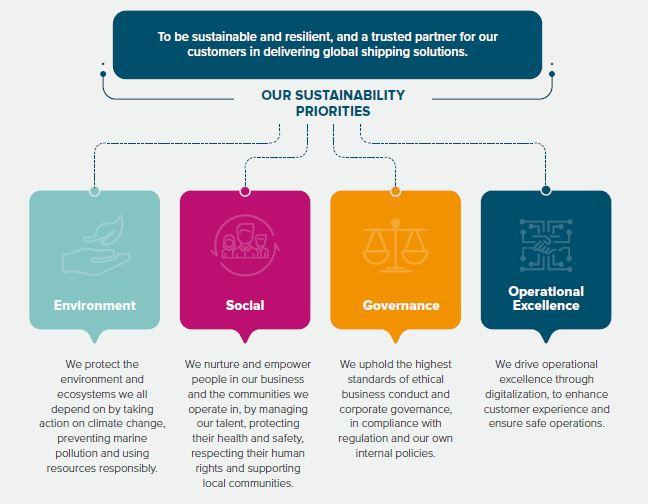
These priorities are based on the material sustainability topics that drive long-term value for our business and our stakeholders. Underpinning our priorities, is our Business Credo, which forms the core of ONE’s commitment to embedding responsible business practices.
ONE recognizes our role in providing safe and reliable services while meeting our customers’ expectations and maintaining their trust. At the helm of our brand, ONE’s Business Credo enshrines eight principles reflecting how we want to do business.
ONE’s Business Credo
1. Good-faith business activities
2. Environmental and safety initiatives
3. Enhanced security
4. Compliance with laws and ordinances, respect for human rights
5. Exclusion of antisocial activities
6. Disclosure of information and communication with society
7. Social contribution activities
8. Preservation of favourable work environments
ONE’S COMMITMENT TO THE UNITED NATIONS GLOBAL COMPACT (UNGC) PRINCIPLES
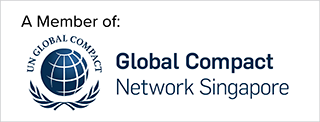 With our broad business activities spanning across 120 countries around the world, ONE is inherently confronted with worldwide ethics, human rights, labour and environmental issues, be it from a direct or an indirect manner. In turn, to responsibly mitigate the impacts of our operations on the global environment, ONE has sought to become a member of the Global Compact Network Singapore (GCNS), the local chapter of the United Nations Global Compact (UNGC) network.
With our broad business activities spanning across 120 countries around the world, ONE is inherently confronted with worldwide ethics, human rights, labour and environmental issues, be it from a direct or an indirect manner. In turn, to responsibly mitigate the impacts of our operations on the global environment, ONE has sought to become a member of the Global Compact Network Singapore (GCNS), the local chapter of the United Nations Global Compact (UNGC) network.
As a member, ONE supports the ten UNGC Principles and has pledged to adopt and promote sustainable and responsible business practices. This means operating in ways that, at a minimum, meet fundamental responsibilities in the areas of human rights, labour, environment and anti-corruption.
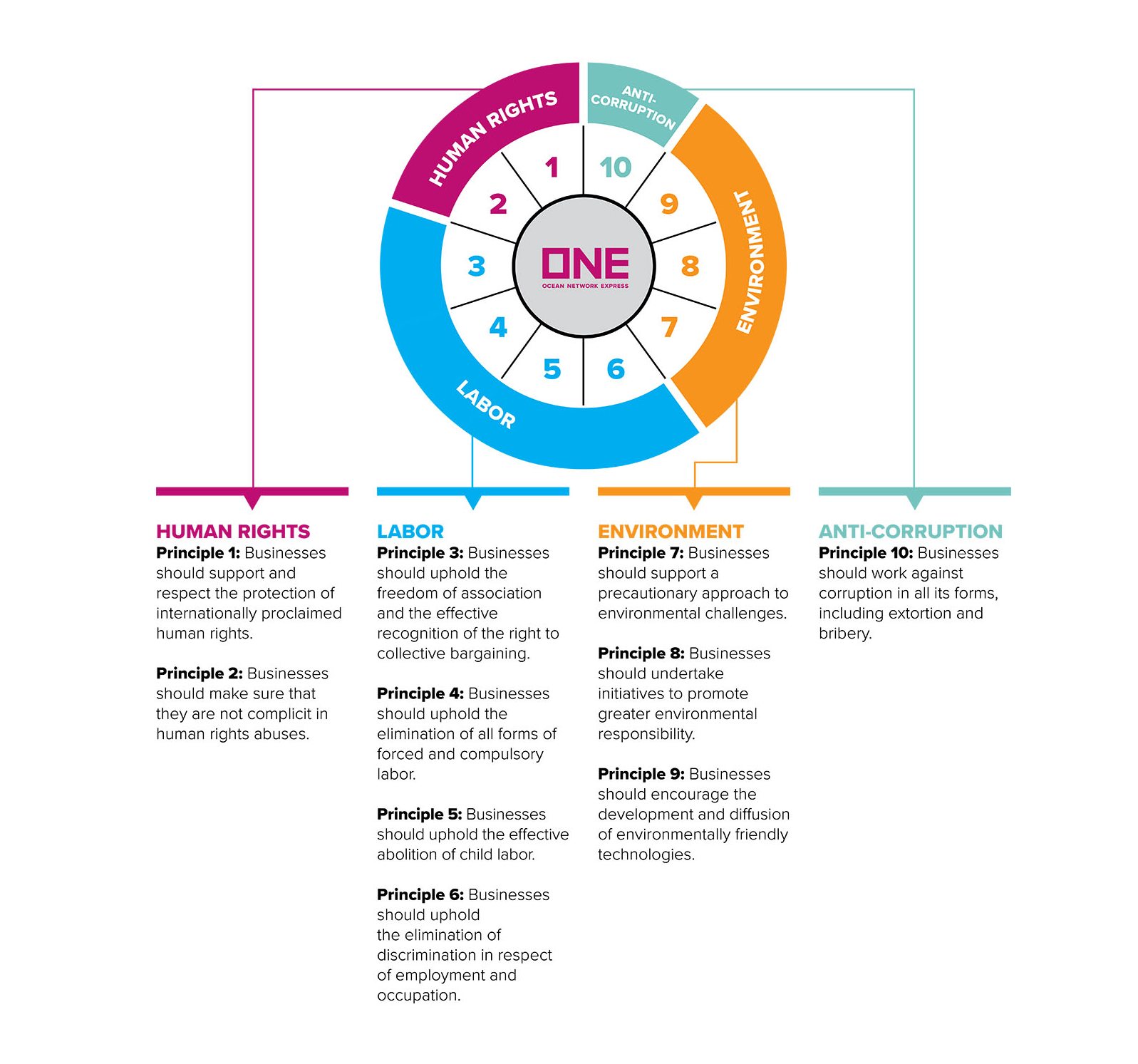
Sustainable Development Goals (SDGs)
The Sustainable Development Goals are a suite of 17 actionable guidelines for all nations to adhere regardless of their income status, for the promotion of global prosperity and environmental protection. The initiative accentuates the importance of counteracting poverty which is perceived as a barrier to economic growth and emphasises on the tackling of social and environmental issues, as the precursors of the problem.
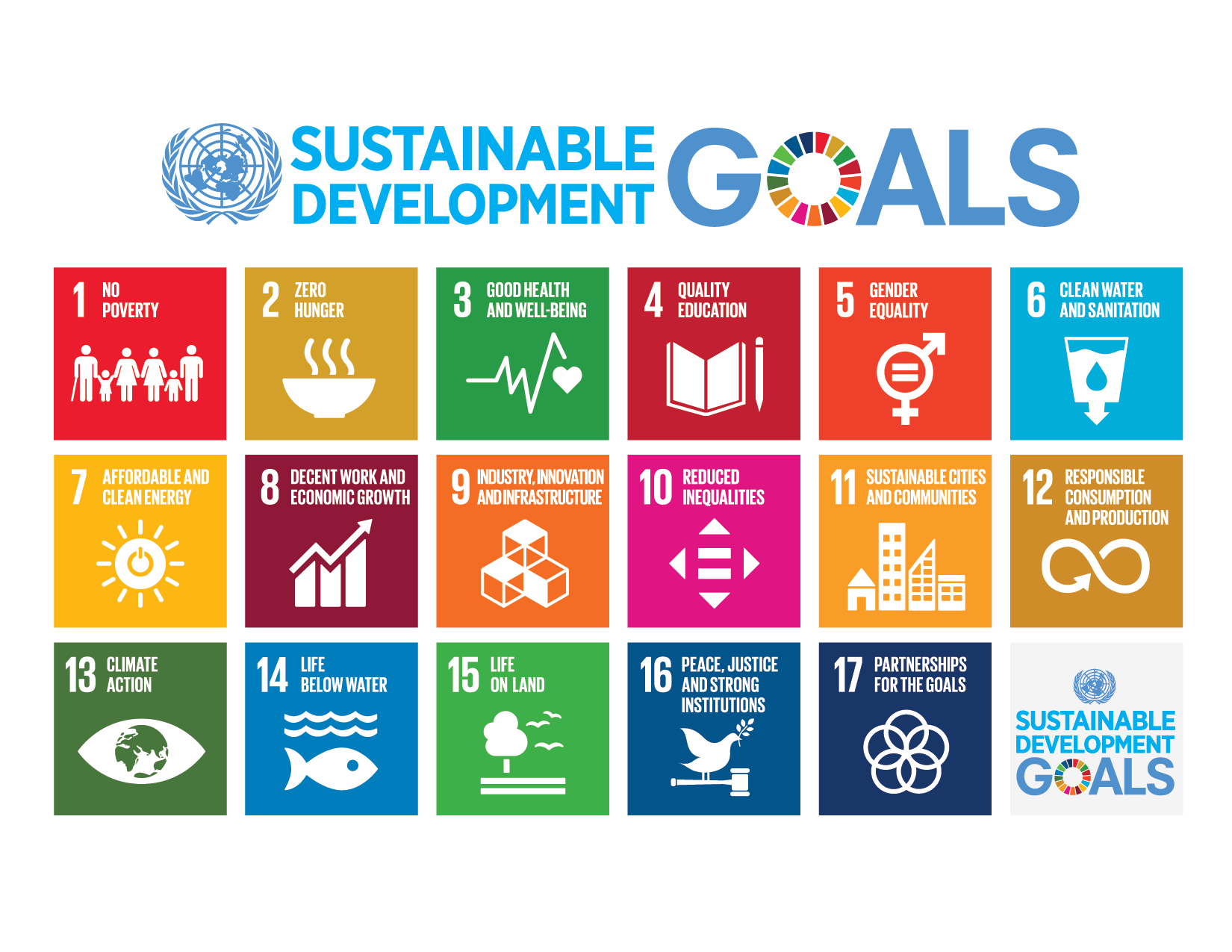
As a corporate member of Global Compact Network Singapore, ONE commits to the SDGs via the incorporation of the recommended best practices to its business strategies and operations.
While our business activities touch on all 17 interrelated SDGs, directly or indirectly, we have identified four priority SDGs (as shown below) which we believe we can have the biggest impact on through our core business activities as well as through partnering with others. These SDGs are of greatest relevance and alignment to ONE’s business and sustainability priorities, representing opportunities where we can best contribute to sustainable development. In addition, we identified SDGs 4, 5, 8, 12, 16 and 17 as also relevant to ONE’s overall sustainability agenda, constituting secondary focus areas where ONE’s activities can positively contribute to.
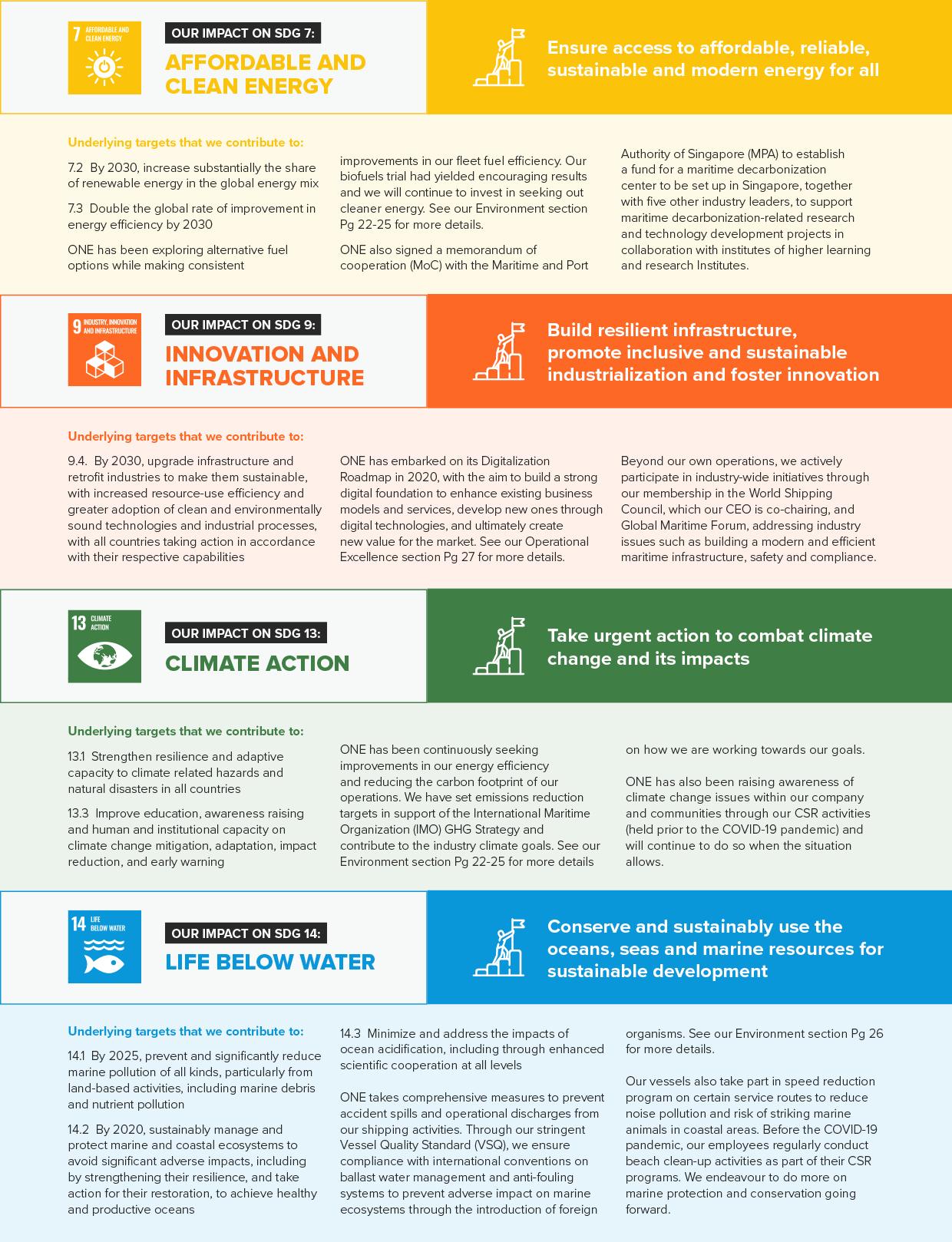
Green Vision, Mission and Targets
In April 2022, ONE announced our new Green Strategy. ONE’s Green Strategy sits at the top of our management agenda, as does our commitment to achieve net zero by 2050, thereby playing an important role in global environmental conservation.
Green Vision
To be a global leader in the realization of environmentally sustainable shipping
Green MISSION
We will achieve carbon net-zero shipping in order to protect our planet via lean and agile best practices and open collaboration
Environmental Target
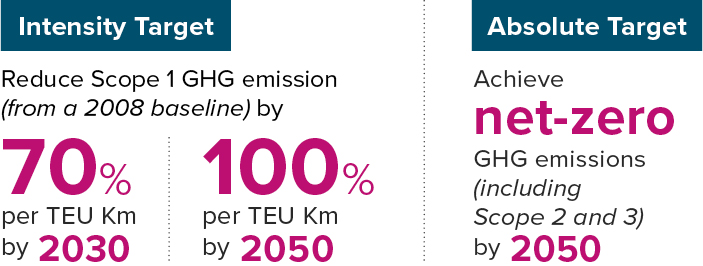
Environmental Management System (EMS)
The environmental management system was first established in 2018 to serve as the backbone of ONE's environmental protection plan, where all employees were guided and trained. Additional training was also conducted for management team and ISO project team members.
ISO 14001 is an international EMS standard set by the International Organization for Standardization (ISO). Requirements for the EMS are stipulated in ISO 14001.
We have received our ISO14001:2015 certificate on 18 Oct 2018 from ClassNK. The validity of this certificate has been renewed until 17 Oct 2027.
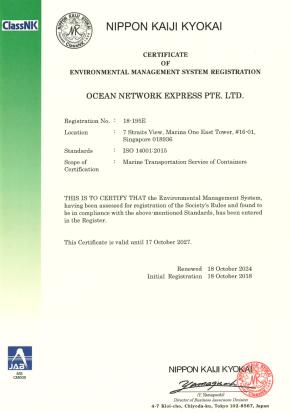
Click here to download copy (PDF).
Achievements & Partnerships
Since its establishment in 2018, ONE has clinch several awards and partnerships in her journey towards decarbonisation. We believe in close collaboration and proactive partnerships in order to deliver our sustainability commitments. As such, ONE maintains strong relationships with industry partners, associations, government and business partners.
Sustainability Awards and Certifications
Memberships & Associations
Preservation/ Biodiversity
(1) Oil Spills Prevention
At ONE we are also prepared for the unexpected. Unplanned events and loss of containment can result in some of the most significant environmental impacts in our industry. To address this risk, our marine safety & quality team developed a Crisis Management Manual that sets out the appropriate response procedures in the event of cargo trouble or maritime accidents such as spills, ship collisions, ship damage, engine trouble, cargo damage and typhoons. In addition, the manual provides clear roles and responsibilities including CEO and reporting procedures when an accident occurs. Our regional managers went through a crisis management training to ensure the emergency preparedness of our organization. Large-scale maritime accident response training will be conducted at least once a year to ensure the effectiveness of the Crisis Management Manual and build capabilities amongst employees, ensuring our staff are equipped to respond to maritime accidents promptly and effectively.
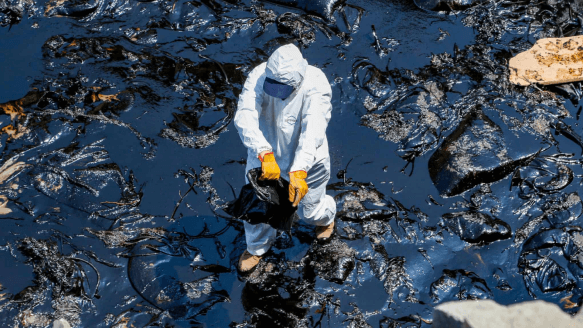
(2) Ballast Water Management
Taking on and discharging ballast water during voyage can provide a pathway for species transfer between different ecosystems. This could result in the release of harmful invasive and non-native algae, plants or animals into new environments. The IMO adopted the Ballast Water Management (BWM) Convention in 2004, with its provisions entering into force from September 2017. The Convention requires ships in international traffic to implement a Ballast Water and Sediments Management Plan, to carry a Ballast Water Record Book, and to apply ballast water management procedures to meet the standards set. Our operating fleet at this stage comprises of more than 200 ships. These ships are chartered from our parent companies and ship owners who are compliant with environmental regulations and committed to reducing their environmental footprint. Our fleet management team will work with ship owners to select the appropriate ballast water treatment system and establish operational guidelines to protect biodiversity during transportation.
(3) Marine Species Protection
Plant-A-Coral, Seed- A-Reef
As part of ONE's effort to conserve the marine biodiversity, we have worked with The Garden City Fund's Plant-A-Coral, Seed-A-Reef programme to support the habitat enhance efforts at Singapore Sister's islands Marine Park through ONE's donation. The main objective is to strengthen our marine biodiversity by providing areas for marine organisms to grow and reef fish to seek refuge. With this donation, ONE want to raise awareness of the existing issue on the environment and hope like minded individuals can be more environmentally aware on how we can play a part in preserving our biodiversity and environment.
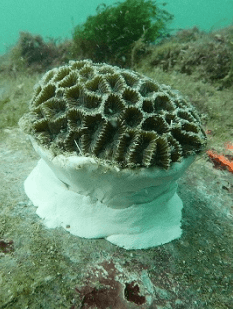
Key Initiatives
We envision ONE to be a global leader in the realisation of environmentally sustainable shipping and green strategy is a top of our management agenda. We have also placed great emphasis in our commitment to achieve net zero by 2050, as well as global environmental conservation.
Besides our pledge to become net zero, ONE recognises the need to make continuous investment in green assets and technologies while taking appropriate actions to meet our target.
We must all work differently and put sustainability at the heart of our business in order to ensure the long term sustainability of ONE and as such, we have identified seven key initiatives:
Decarbonisation Initiatives

Investment

Fuels

Management
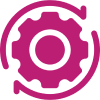
Efficiency

Ecosystem Building
Environmental Initiatives
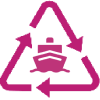
Recycling
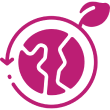
Conservation
Decarbonisation Initiatives

Investment
Green investments are crucial for incremental efficiency increase and innovative technologies to achieve net-zero emissions. You may also be aware of our fleet modifications to enhance fuel performance, such as the attachment of the energy-saving propeller boss cap and modification of the bulbous bow. These are forms of technologies that enhance our efficiency incrementally, alongside frequent maintenance of our existing vessels is necessary to keep them in best conditions.
Beyond these technologies, we are also looking into various forms of green investments such as talents, who have the operational knowledge and expertise, particularly for zero-emission vessels, as well as hardwares, where we will engage in the replacement of the older fleet with new and more fuel-efficient vessels. By 2030, ONE will deploy its first alternative fuel ships which are able to achieve both net zero GHG emissions while increasing vessel capacity simultaneously.

Fuels
Presently, there is no clear answer to which alternative fuel can help achieve net-zero for the maritime industry and each alternative fuel is in different stages of development and has different characteristics. ONE has conducted several biofuel trials in the past few years and while we recognize the supply constraints for scaling up biofuel usage, biofuels are still useful as a support fuel in specific cases such as pilot fuel for green ammonia and green methanol.
While we do not eliminate any alternative fuels currently, ONE plans to reduce reliance and replace existing conventional fuel vessels by 2050. ONE will thus prioritise R&D and investments for green ammonia, green methanol and green methane related vessels and technologies.

Management
We have highlighted three main actions for carbon management.
Firstly, we have introduced an internal carbon pricing system on a trial basis since 2021 and we intend to use it continuously as one of the indicators to guide investment decisions.
Secondly, we will develop low-emissions service offerings for our customers using low-carbon fuels. At present, we are also preparing a carbon calculator to measure the emissions from our services to enable our customers to identify their carbon footprint accurately.
Lastly, we are studying green-related technologies such as carbon capture and storage. This will be conducted in tandem with regulatory authorities in each country.

Efficiency
On top of existing methods, such as improving vessel size, vessel speed reduction and the use of inhouse fleet monitoring systems, ONE recognise the importance of improving fuel efficiency through other programs. We have made several efforts to pursue operational efficiency in order to reduce our greenhouse gas emissions and this includes optimising product performance, such as the continuous review of vessel proforma, improving asset portfolio through the modification for safe bunker and loadability such as the use of antifouling paint or Alternative Maritime Power (AMP) retrofit.
Besides new technology and efficiency programs, we will also continue to evaluate and invest in digitalisation tools and initiatives which allows improvement of our operational efficiency and to achieve fuel consumption savings. Existing milestones such as the Digitalisation Strategy Roadmap have commenced since 2020 and we are looking into investing in future technologies to continually improve our operational efficiency and reduce carbon emissions.

Ecosystem Building

Environmental Initiatives

Recycling
We believe that ship recycling is critical to ensure sustainable vessel operations from start to end of life. As we plan to own vessels in the near future, we will audit dismantling sites used by third party organisations to minimise the damage and emissions associated with ship breaking and ship recycling. Additionally, this will ensure the recovery of scrap metal, and the reduction of both greenhouse gas emissions and pollution to the environment.
In line with this commitment, ONE has established a dedicated Ship Recycling Policy, which outlines our principles and procedures to ensure safe, environmentally sound, and transparent ship recycling practices. The policy is based on international standards including the Hong Kong International Convention for the Safe and Environmentally Sound Recycling of Ships (2009) and the EU Ship Recycling Regulation (2013). It also reflects our participation in the Ship Recycling Transparency Initiative (SRTI), which we joined in 2025.
Please find the signed policy here: [ONE Ship Recycling Policy]

conservation
Besides ship recycling, ONE’s new green strategy also places emphasis on environmental conservation. As frequent users of the ocean, we also play the role of a custodian to the ocean. ONE aims to prevent ecological damage and proactively lead initiatives to help regenerate the ecosystem. In order to meet this objective, we plan to participate in ecological conservation programs, such as the conservation of marine life, and ensure zero significant spills for all vessels.
Furthermore, we aim to establish our Environment Fund in 2022 to finance environmental related activities which will support long-term efforts towards material environmental themes and serve as a platform to educate employees and stakeholders on our environment.
Operational efficiency
Ocean Network express aims to deliver goods safely, timely while priotitising environmental protection and energy conservation. In order to achieve this mission, ONE place great emphasis in reducing our greenhouse gas (GHG) emissions and we have been making progress since our establishment in 2018.
To work towards our targets, we have implemented initiatives aimed at improving our operational and fleet fuel efficiency to reduce energy consumption and CO2 emissions.
Since 2020, we have been introducing measure to improve our fleet fuel efficiency. These include modification of bulbous bow to reduce wave resistance, replacement with high efficiency propellers and attachment of special propeller boss cap. These measures are expected to reduce up to 10% of emission from fuel use per vessel. We will continue to implement these modifications progressively across our fleet. Other measures taken to improve efficiency in our service are as follows:
(1) Improving operational efficiency


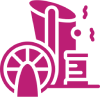


(2) Enhancing fleet fuel efficiency


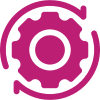

GHG Footprint
As ONE envisions to be a global leader in the realization of environmentally sustainable shipping, we place great importance in measuring and tracking our environmental footprint to achieve our net-zero GHG emissions target in 2050.
As we work towards our interim goal of reducing 70% of our Scope 1 emissions per TEU-km by 2030, we have made considerable progress in FY2023, reducing our Scope 1 emissions intensity by 62% against baseline year 2008. Our efforts have yielded a 21% reduction in emissions intensity from 2018 to 2023. We expect further reductions in the future as we continue to develop and implement green solutions for our operations.
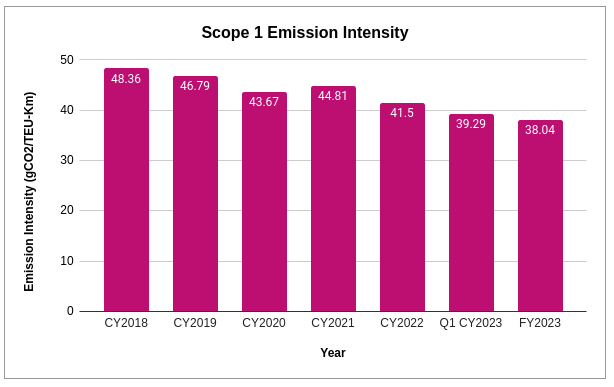
Scope 1 Emissions Intensity (grams of CO2 per TEU-Km, gCO2/TEU-Km)
| Year | CY2018 | CY2019 | CY2020 | CY2021 | CY2022 | Q1 CY2023 | FY2023 |
| Emission Intensity (gCO2/TEU-Km) |
48.36 | 46.79 | 43.67 | 44.81 | 41.50 | 39.29 | 38.04 |
Note:
Scope 1 emission intensity in CY2018 - 2020 was calculated based on the CCWG Methodology while emission intensity from CY2021 onwards have been calculated based on voyage leg completion basis. ONE’s Scope 1 emission intensity based on the Clean Cargo’s methodology is 41.64 gCO₂/TEUkm in 2022. As we are transitioning from a calendar year (CY) to a financial year (FY) reporting system, we are unable to include CCWG figures for FY23, as the CCWG assured data is only available up till CY2022. The base year recalculation for emission intensity has not been retriggered, as the additional Scope 1 data added was deemed immaterial due to its very small value, and therefore does not significantly impact the overall figures. Current emission intensity does not include MME operations.
Scope 1 Emission from Fuel Consumption (Tonnes of CO2, TCO2)
ONE's Scope 1 emissions are emissions arising from our ocean-going vessels. In FY23, we have progressed to include our Scope 1 emissions from our Multi-modal express LLC operations. These Scope 1 emissions result from the combustion of natural gas burnt to heat offices and mechanic shops.
| Fuel Type | CY2018 | CY2019 | CY2020 | CY2021 | CY2022 | Q1 CY2023 | FY2023 |
| Fuel Oil | 9,191,451 | 12,163,491 | 10,638,466 | 9,946,604 | 8,614,645 | 1,986,792 | 9,476,766 |
| Gas Oil | 898,882 | 1,284,634 | 949,117 | 981,151 | 774,152 | 176,261 | 793,794 |
| Natural Gas | - | - | - | - | - | - | 6 |
| Total | 10,090,333 | 13,448,125 | 11,587,582 | 10,927,754 | 9,388,797 | 2,163,053 | 10,270,566 |
Note:
Fuel Oil refers to heavy fuel oil (HFO), very low sulphur fuel oil (VLSFO), ultra low sulphur fuel oil (ULSFO).
Gas Oil refers to marine gas oil (MGO) or diesel oil (MDO), low sulphur gas oil (LGO) or diesel oil (LDO).
Scope 2 Emissions from Electricity Consumption (Tonnes of CO2, TCO2)
Previously, ONE had only reported Scope 2 emissions at GHQ level and in 2021, we have since expanded its Scope 2 reporting boundary to all offices globally and OPS consumption under an operational control approach to uphold the principles of GHG reporting stated by the GHG Protocol. We have also started reporting our emissions under the location-based and market-based approach in 2021.
| Year | GHQ | Other Offices and OPS | Total |
| CY2018 | 161 | No Data | 161 |
| CY2019 | 158 | No Data | 158 |
| CY2020 | 140 | No Data | 140 |
| CY2021 (market-based) | 143 | 10,284 | 10,427 |
| CY2021 (location-based) | 143 | 10,333 | 10,476 |
| CY2022 (market-based) | 218 | 10,381 | 10,599 |
| CY2022 (location-based) | 218 | 10,330 | 10,549 |
| Q1 CY2023 (market-based) |
57 | 2,063 | 2,120 |
| Q1 CY2023 (location-based) |
57 | 2,059 | 2,116 |
| FY2023 (market-based) |
238 | 9,581 | 9,819 |
| FY2023 (location-based) |
238 | 9,542 | 9,780 |
Note:
As ONE only began collecting global data in 2021, our Scope 2 emissions from 2018 - 2020 only include electricity consumption in GHQ. Scope 2 emissions from reefers in 2021, 2022 and 2023 were excluded due to a lack of accurate data during the reporting period. In 2023, ONE accounted for all Scope 2 emissions under our operational control. Sum of figures in the table may not tally as the figures have been rounded off to the nearest whole number.
Scope 3 emissions from fuel- and energy-related activities (tonnes of CO₂, tCO₂)
FY23 marks our inaugural disclosure of one of our material Scope 3 emission sources from Category 3: Fuel and Energy Related Activities. Our Scope 3 Category 3 emissions are associated with upstream activities related to fuel and energy production that are not included in our Scope 1 or Scope 2. We aim to expand our Scope 3 inventory to encompass all material emissions.
| Category | FY2023 |
| Fuel and Energy Related Activities | 2,267,155 |
What is ONE LEAF+?
As part of ONE's efforts to decarbonise, ONE LEAF+ is an additional service offered to enable customers to manage their Scope 3 GHG emissions. ONE LEAF+, which stands for Low Emission-Able Freight, is a suite of solutions designed to assist its clientele in reducing the GHG footprint of their cargo. The "+" symbolizes the advancement that ONE anticipates will result from decarbonizing the supply chain.
By deploying low emission alternative fuels on selected vessels, ONE generates CO2e savings for customers who wish to reduce their Scope 3 GHG emissions on their shipments with ONE. CO2e savings (link to certificate) will be allocated to customers using the book-and-claim methodology, which allows customers to purchase the beneficial aspects of the low emission alternative fuel for their entire shipment.
Process flow
| S/N | Process |
|---|---|
| 1 | ONE LEAF+ booking confirmed |
| 2 | Biofuel purchased by ONE and consumed by ONE’s vessels |
| 3 | CO2e savings measured and verified by independent 3rd party verifier |
| 4 | CO2e savings allocated to customer’s shipment and delivered to customer |
FAQ
1. What is the book-and-claim methodology?
2. What is the difference between CO2e and CO2?
Under the Well-to-Wake methodology, ONE will account for the warming effect of all significant global warming gases (for eg CH4, NO2, SO2)
3. What are scope 3 emissions?
Scope 3 emissions refer to indirect emissions arising from a company's value chain. It covers 15 categories upstream and downstream. A company's scope 3 emission is your valuechain supplier scope 1 and 2 emissions.
FAQ on GHG Protocol here.
4. How can I purchase this service?
Please contact your local sales representative to enquire further and purchase this service as it is not directly available on e-commerce at this stage.
5. How is this service priced?
6. What standards are applicable to this service & sample certificate?
ISO 14067:2018 (Greenhouse gases Carbon footprint of products)
2023 Global Logistics Emissions Council Framework for Logistics Emissions Accounting and Reporting V3.0
7. Is ONE LEAF+ available for all container types/trade lanes?
8. How are CO2e savings and emissions avoidance calculated?
To calculate our customer’s existing emissions, ONE employs the industry-standard Clean Cargo Working Group methodology managed by Smart Freight Centre.
Under ONE LEAF+, CO2e savings are calculated by subtracting the well-to-wake CO2e emissions of our use of biofuel under ONE LEAF+ from that of conventional fuel. The CO2e savings, verified by 3rd-party verifier, are allocated to our customers who choose ONE LEAF+ to reduce their estimated emissions.
9. When will I receive my CO2e savings?
10. What kind of biofuel does ONE use?
11. Are there any plans to use other low emission alternative fuels in the future?
Biofuel is the first alternative fuel available under ONE LEAF+. ONE has placed an order for 12 Methanol Dual-Fuelled boxships which will be delivered in 2027 and continues exploring further emission reduction solutions.
Please refer to details of our Green Strategy here.
Sample Certificate
About ONE Eco Calculator & Methodology
At ONE we believe that reaching decarbonisation is not an individual effort but the effort from across the industry. To encourage our customers to measure and manage their cargo emissions, we would like to introduce ONE Eco Calculator. ONE Eco Calculator allows you to calculate the emissions of your container transport from the start to end of the journey.
ONE Eco Calculator follows industry recognised methodology for their inland and ocean-going transportation. In addition, ONE’s ocean-going carbon emissions data are verified by ClassNK via the Clean Cargo methodology.
Inland
For our inland transportation, carbon dioxide emissions are calculated according to the GLEC Framework.
Ocean-going
For our ocean-going transportation, carbon dioxide emissions are calculated according to the methodology developed by the Clean Cargo. However, full utilization capacity is used for this calculation.
ONE ECO-Calculator’s Ocean Emissions Estimation Method and GHG Emissions Reductions from the Use of Biofuel Estimation Method
What is Insetting?
Carbon insetting is a carbon project that occurs within a company’s value chain or in local communities where their supplier operates.
An example would be the use of biofuels to reduce emissions. Biofuel produces lesser emissions than standard low sulfur fuel oil used onboard vessels. Emissions saved are later sold to customers indicating a direct emission reduction.
What is Offsetting?
Carbon offsetting refers to a reduction in GHG emissions by investing in projects outside of the company's value chain, and is in turn used to compensate for emissions that occur within the company's value chain.
Examples may include blue carbon projects, afforestation projects and renewable energy projects.
Difference between insetting and offsetting
| Metric | Insetting | Offsetting |
|---|---|---|
| Service | ONE LEAF+ | program in development |
| Impact on carbon footprint | Direct | Indirect |
| Emissions impacted | Within value chain | Outside value chain |
| Methodology based on | Compliance bodies | Voluntary bodies |
| Effectiveness | High | Variable |
| Environmental journey | Advanced | Beginning |
| Company carbon footprint | Large | Small |
| Resources available | Dedicated | Limited |
| Environmental commitments | Compliance | Limited |
| Use to address | Bulk of emissions | Residual emissions |

Safety
Marine Accident Report System (MARS)
ONE launches our Marine Accident Report System (MARS), with aims of processing accident cases appropriately and swiftly, analysing accident trends, and formulating effective prevention measures.
We are taking various steps aimed at eliminating accidents, by using this system to analyse accident details and trends and the deeply explore root cause of accidents. By creating a database of accident information, moreover, we are able to share information with our worldwide network in a timely manner and establish optimal safety measures.
Crisis Management
ONE has created an emergency response network based on five overseas regions, allocating Marine Super Intendent (MSI) to regional vessel operators, which aims to be ready for maritime accidents and problems around the world.
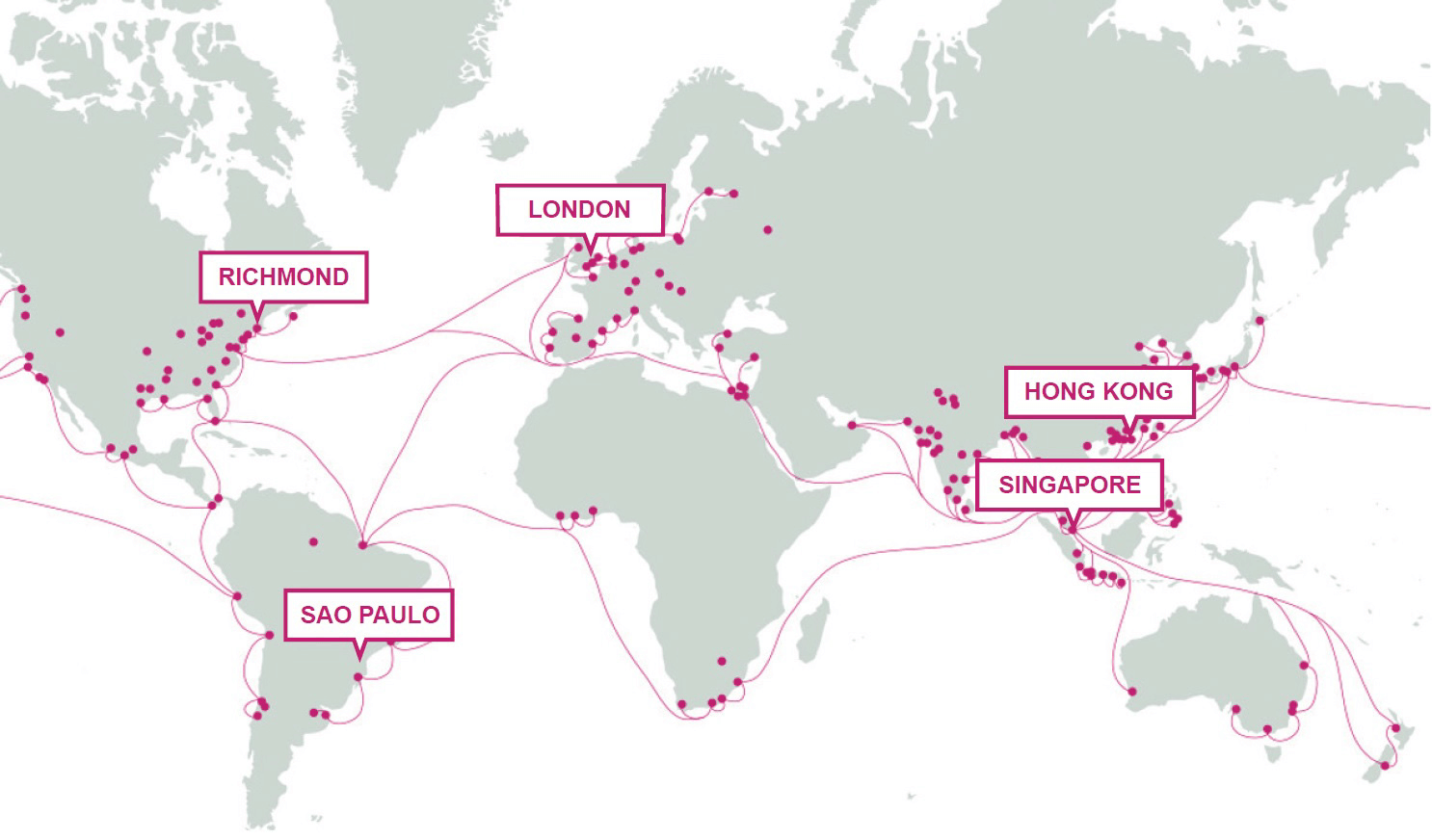
Use of Downtime to Measure Safety
We use the time that ships are stopped due to accidents or problems as a means of measuring the degree to which we have achieved safe ship operation. Our sea and land operations work together to bring us closer to the target of 'zero' downtime.
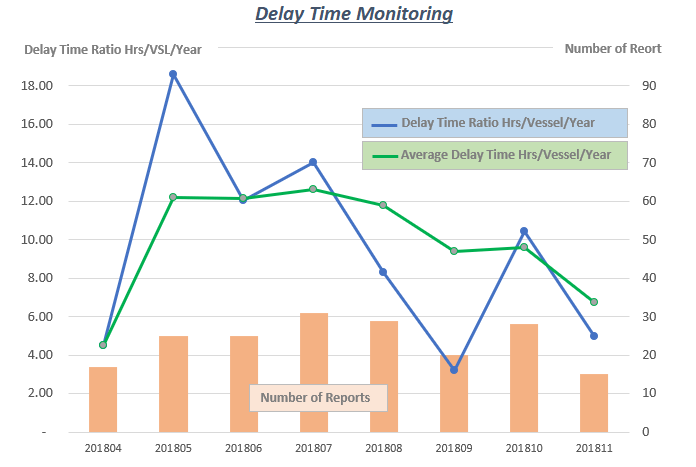
Pre-embarkation Briefing
Prior to embarkation, vessel operators and Marine Safety & Quality department conduct a pre-embarkation briefing for captains. This is an opportunity to explain the Company’s basic policies on safety, as well as to provide the latest specific information and instruction through safety management manuals and related written procedures adopted by each management company.
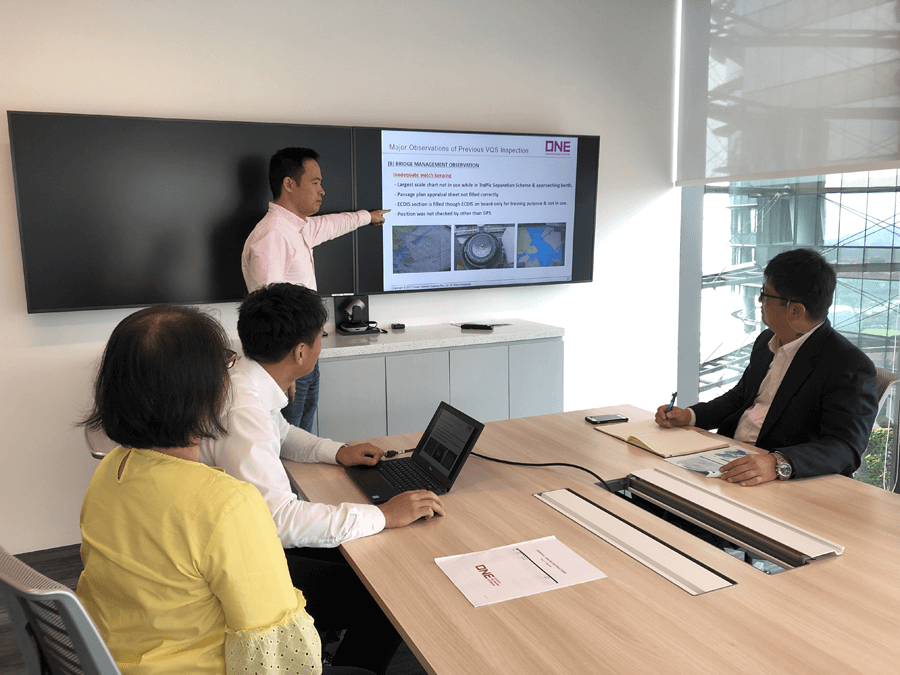
Large-Scale Accident Drill
In the unfortunate event of an accident, timely and accurate responses are crucial. To ensure such responses, we regularly conduct drill assuming “worst-case scenarios involving ships under our operation.” This drill involves practical training and cover everything from assembling an early emergency response team to establishing an accident response headquarters and setting up information-sharing systems within it, as well as establishing systems for communicating with overseas parties.
Navigation Policy (Anti-piracy activity)
The number of piracy incidents off the coast of Somalia and the Gulf of Aden has remained low in recent years due to countermeasures undertaken by various national troops, including Japan’s Maritime Self-Defence Force. Nevertheless, the situation could easily be reversed if the international community weakens its efforts. Moreover, piracy-related losses still occur frequently in Gulf of Guinea (West Africa) and in Southeast Asia. Accordingly, conditions for merchant ship navigation remain unpredictable.
Off the coast of Somalia and in the Gulf of Aden, we endeavour as much as possible to receive protection from Japan’s Maritime Self-Defence Force and navies of various countries. For our own self-defence, we do everything possible to ensure the safety of crew as top priority. This includes avoiding problematic areas, maintaining at high speeds, using high-pressure water nozzle, installing razor wire to prevent unauthorized embarkation, and wearing bullet-proof vests and helmets.
PDCA cycle for Safety
Marine Safety & Quality department publish up-to-date safety information to share accident case and good practice from our operating vessels. Lessons learned from the accidents, and environmental measures are notified to the shipowners, ship management companies, and all operational vessels through the monthly newsletter, and information is shared between onshore and offshore personnel.
Vessel Operation – day to day Monitoring
Global Vessel Operations conduct day-to-day operation meeting to check navigate risks timely and discuss measures against on-going issues if there is. ONE global head quarter has vessel operation room which monitor operating vessels by tracking vessel’s position together with the latest weather condition.
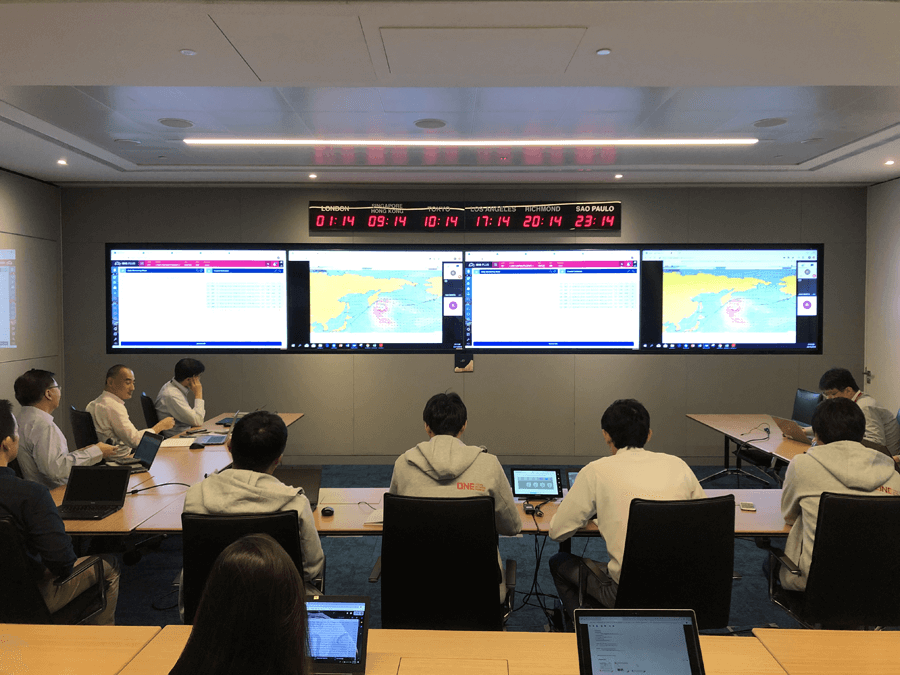
Safety Campaign
ONE periodically conducts safety enhancement campaigns to foster a corporate culture that embodies safety. Personnel engaged in onshore and offshore operations exchange opinions and deepen their mutual understanding about a main theme that is set based on current priorities. During the campaign period, Executive officers and management involving in the campaign will be conducting vessel visits to emphasize the importance of navigation safety with the captain & crews and discuss what measures can be taken on board to achieve this goal. ONE also creates opportunities for further discussion with representatives from shipowners and ship-management companies to get its safety activities to the frontline of vessel operations.
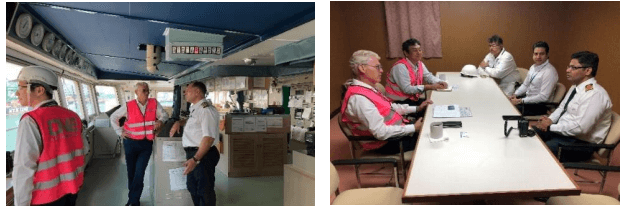
QUALITY
QUALITY POLICY
At Ocean Network Express (ONE), we create value for our stakeholders and society at large. Our owned and chartered vessels, being the frontline of our service, is the key element to achieving this.
We continuously monitor condition of fleet vessels considering both aspects of hardware and software. We then try to improve the conditions together with owners / ship managers in order to pro-actively prevent accidents or detentions. We also endeavour to ensure that requirements of ONE for saving of bunker and other activities are properly understood and complied by those on board.
We are committed to comply with applicable requirements and continually improve the effectiveness of the Quality Management System.
This is our commitment, and together we shall achieve this.
Established in Nov. 2020
Revised in May. 2023
By Chief Executive Officer
COMMITMENT TO MAINTAINING Vessel QUALITY
Safety and Quality are and will remain our utmost priority.
It is our mission to provide quality and reliable service by incorporating highest standards of safety in the operation of our vessels and the transportation of cargo.
We understand that only with good safety and quality standard of our vessels, can we instil trust in our customers and achieve customer satisfaction.
In April 2018, we established ONE VESSEL QUALITY STANDARD (ONE-VQS) SYSTEM to fulfil this objective.
Vessels chartered by ONE undergo periodic Vessel Quality Standard (VQS) inspections to enable us in monitoring the condition of fleet vessels with respect to both hardware and software. We then try to improve the conditions on board together with owners, so as to meet our requirements. These inspections are carried out by third-party survey companies, in close collaboration with our Marine Safety & Quality department.
We established our Quality Management System (ISO 9001:2015 certified) in 2020. All related personnel have been trained to familiarise with related processes to ensure quality is not compromised. The quality policy is readily made available to all interested parties and such information can be passed down easily so that requirements of the standard are complied with.
QUALITY MANAGEMENT SYSTEM (ISO 9001:2015)
ISO 9001 is an international Quality Management System (QMS) standard set by the International Organization for Standardization (ISO). Requirements for the QMS are stipulated in ISO 9001.
In 2020, the top management decided to adopt a QMS, built upon the basis of our internal vessel quality system, ONE-VQS. The QMS serves to implement our work processes smoothly and systematically, furthermore, strengthen both safety and quality aspects of our fleet.
We have received our ISO 9001:2015 certificate in March 2021 from ClassNK.
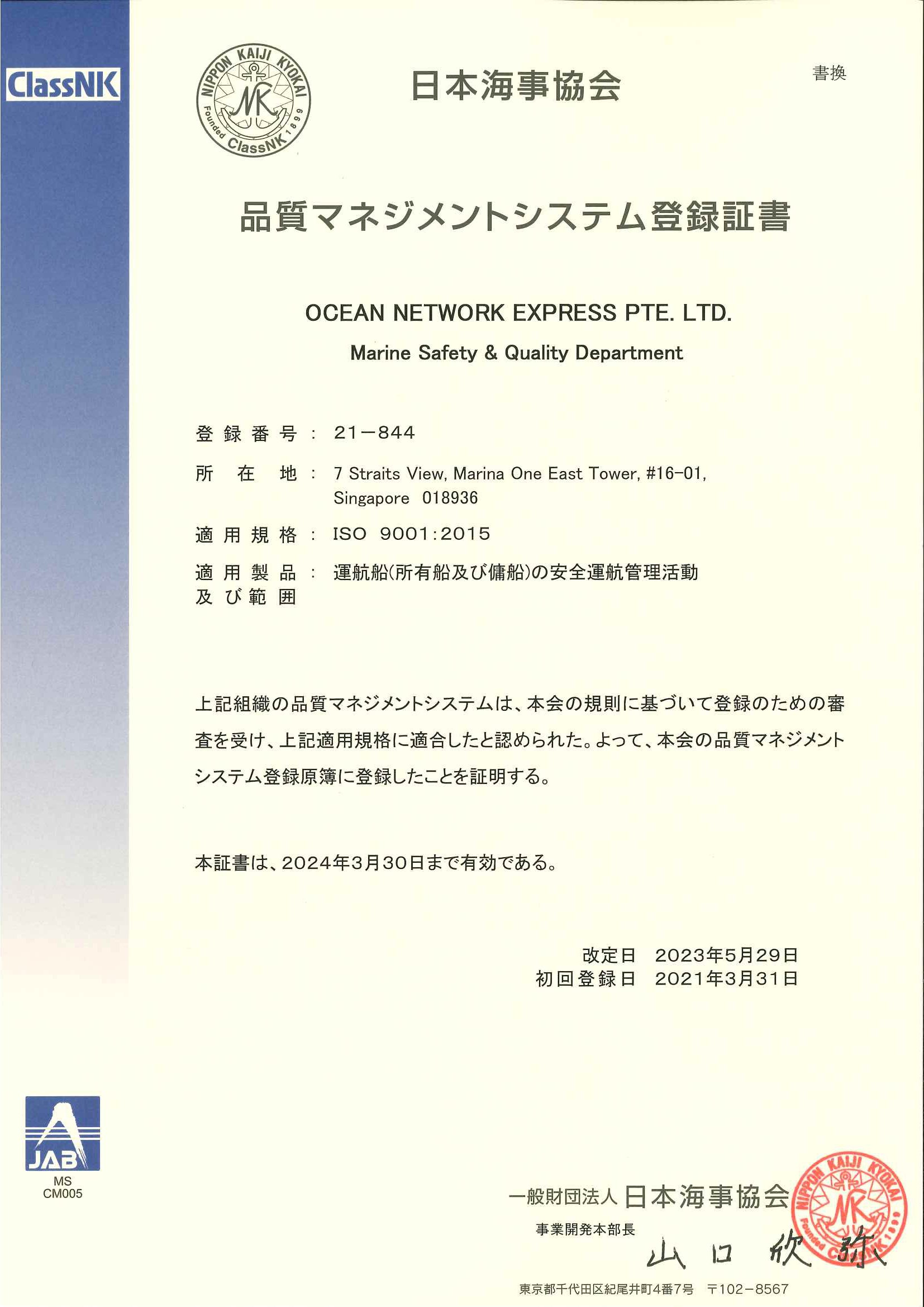
Click here to download copy (PDF).
ONE VESSEL QUALITY STANDARD (ONE-VQS) SYSTEM
ONE has established ONE-VQS, a rigorous, self-imposed safe ship management system, to better discharge our responsibilities with respect to safe navigation, safe cargo operation, protection of environment and achieving customer satisfaction. The standard covers more than 260 items, including international treaties, international quality standards, measures to prevent accidents from recurring, and requirements from customers. ONE-VQS has been applied to all our operational vessels, has been reviewed and continuously improved based on the QMS.
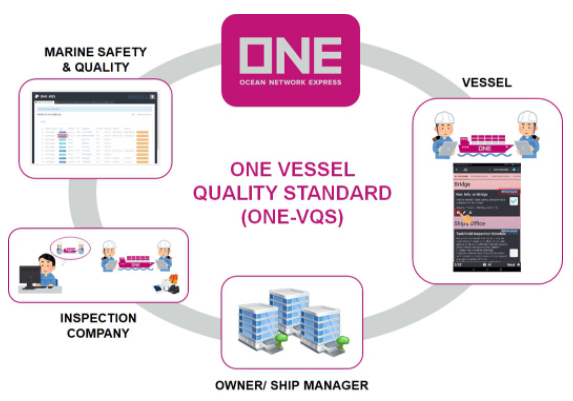
Human Resources
Human Rights
As a member of Global Compact Network Singapore, we support universal principles regarding human rights and labour standards. Our commitment to human rights is expressed through our Credo and Code of Conduct. We will work to ensure that we do not contribute to human rights violations as a result of our global business activities. As a trusted employer, we will also ensure that all our employees are treated in a manner consistent with the applicable laws and labour conventions.
We will work to ensure that we do not contribute to human rights violations as a result of our global business activities.
A compliance committee has been established in 2018 whose responsibility is to ensure that ONE respects human rights throughout its operations and will integrate human-rights considerations into its existing management systems.
CSR Activities
ONE actively organises and participates in the various CSR activities. Please find below a listing of some recent activities of interest.

Corporate Governance
Corporate Governance Structure
ONE was born from the integration of the container shipping businesses of three companies - Kawasaki Kisen Kaisha, Ltd., Mitsui O.S.K. Lines, Ltd., and Nippon Yusen Kabushiki Kaisha. ONE Holding Company, based in Japan, oversees the governance of operational global headquarters based in Singapore (GHQ). With GHQ, ONE’s global presence through regional offices, branches, subsidiaries and joint-ventures will span across more than 120 countries and GHQ oversees the governance with delegation to regional headquarter(RHQ) based in Hong Kong, Singapore, London, U.S.A and Brazil.
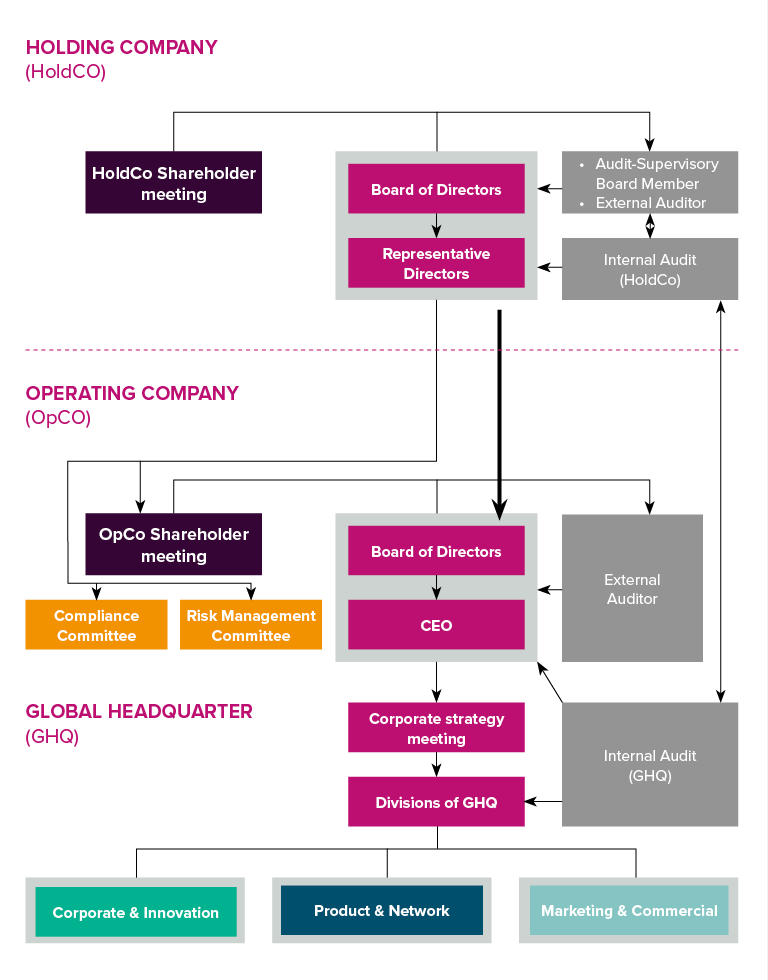
Supply chain Management Policy
Ocean Network Express (ONE) recognizes the importance in establishing mutual trust and harmony with our business partners, who are essential to our business network. To accomplish a high service level, we aim to serve our customers with enhanced efficiency, compliance and integrity. We request the agreement and observance of "ONE’s Supply Chain Management Guideline” to support our efforts of fulfilling ONE's corporate social responsibility (CSR) project.
>> For more details, please visit here.
Tax principle
As tax laws and regulations are evolving and becoming more complex, the risk of unintentional compliance breaches is significantly increasing.
ONE is committed to ensuring compliance with local requirements and working towards tax transparency and disclosure.
ONE does not condone the behaviour of profit shifting with a tax avoidance intent to minimize its tax obligation and commits to be a responsible taxpayer in all relevant countries. As a starting point, our tax department will conduct a research study in view of analysing local tax laws and reporting requirements in various countries where ONE may operate. This study will help us prepare for our country-to-country reporting to local tax authorities in accordance with the OECD’s Base Erosion and Profit Shifting project. Global tax policies and an internal control framework will be developed by April 2018, following our commitment to comply with tax laws and regulations in each jurisdiction. ONE will therefore formalize the approach it will take to carry out its tax planning strategy without compromising the integrity of its corporate governance and tax morality. Tax matters will be monitored by our tax department at our global headquarters which also manages country and regional tax departments
Compliance Framework
Reliability is one of ONE’s core values and we are committed to carry out our business in a reliable manner. All directors, managers and employees adhere to ONE’s Business Credo and Code of Conduct which includes our pledge to work in accordance with the law and social ordinances as an absolute obedience.
The Compliance Committee, held twice a year, establishes ONE’s compliance framework and is the driver for solidifying the culture of compliance in ONE Group chaired by Chief Compliance Officer and attended by Directors, senior management, and department heads. It determines actions required to establish, monitor and further enhance ONE’s compliance initiatives. The Committee is designed and run for each department in charge to take responsibility of its compliance including the monitoring and work as one team to tackle challenges as an organization.
A global hotline system has been set up for early detection of the concurrent issues, and so to receive whistleblower reports and provide immediate consultation on various matters related to compliance.
Bribery and Corruption
As elaborated in ONE’s Basic Anti-Bribery Policy, all directors and employees – whether directly or through third parties – are prohibited from engaging in any form of corrupt practice, including bribery and extortion.
OCEAN NETWORK EXPRESS
MODERN SLAVERY STATEMENT
October 2025
This statement is made pursuant to Section 54(1), of the Modern Slavery Act 2015 (UK) and constitutes Ocean Network Express Pte. Ltd. and Ocean Network Express (Europe) Ltd.’s (together as “ONE”) slavery and human trafficking statement for the financial year ending 31 March 2025.
This is our sixth Modern Slavery Statement. In line with the prior statements, ONE further underscores our continued commitment to prevent modern slavery and human trafficking in global business and supply chains, through sustained efforts to document and communicate progress towards our material goals and key performance indicators (“KPIs”).
OUR STRUCTURE
ONE is a global container shipping business operating worldwide with headquarters in Singapore.
OUR POLICIES ON COUNTERING MODERN DAY SLAVERY AND HUMAN TRAFFICKING
‘Modern Day Slavery’ is an umbrella term, which in the context of global supply chains often relates to cases where individuals are subject to human trafficking, forced labour, or servitude; or where coercion, threats or deception are used to intimidate, penalise, or deceive workers, thereby creating situations of involuntary work and exploitation.
I. ONE BUSINESS CREDO AND CODE OF CONDUCT
We are committed to ensuring that there is no Modern Day Slavery, human trafficking, forced labour or servitude in our supply chains nor in any part of our business. Our Business Credo and Code of Conduct reflects our commitment to act ethically, and with integrity in all business relationships. Our Code of Conduct, highlights this in Chapter 4: “Respect for Human Rights and Diversity of Cultures”, Clause 4-4: “Prohibiting Forced Labour or Child Labour”, which states that ‘ONE does not engage in inhumane acts such as forced labour or child labour and ONE does not conduct trade with business enterprises engaged in such acts’. This is further enhanced in our Credo under Clause 4 ‘Compliance with laws and ordinances, respect for human rights’, ensuring the implementation and enforcement of effective systems and controls against Modern Day Slavery within our supply chains.
II. UNITED NATIONS GLOBAL COMPACT
To be part of a global movement towards conducting business in a responsible and sustainable manner, ONE is a member of Global Compact Network Singapore (GCNS), the local chapter of the United Nations Global Compact (UNGC) network. ONE supports the ten UNGC Principles and has pledged to adopt and promote sustainable and responsible business practices. This means operating in ways that, at a minimum, meet fundamental responsibilities in the areas of human rights, labour, environment, and anti-corruption.
ONE is committed to respecting all ten principles, including Principle 4: the elimination of all forms of forced and compulsory labour.
We recognize our role in society and act in a manner that is fair and just by complying with national laws and ordinances and international norms.
DUE DILIGENCE PROCESSES IN OUR SUPPLY CHAIN
As part of our initiatives to identify and mitigate risk, we have taken steps (detailed below) to integrate sustainability and compliance into our purchasing processes, by measuring and ensuring compliance with social and environmental standards.
1. ONE SUPPLY CHAIN MANAGEMENT GUIDELINE
ONE recognises that to achieve our sustainability and compliance ambitions, we must bring our suppliers and business partners on board. Critical to our operations are terminal operators, inland and coastal transportation companies, ships and container owners, bunker suppliers, and IT vendors, without whom our core business activities cannot take place.
To ensure our high standards of sustainability and business conduct are upheld along our supply chain, ONE launched our Supply Chain Management Guideline (“the Guideline”). The Guideline calls on all ONE’s suppliers and business partners to respect human rights, business norms and compliance. Accordingly, the Guideline encourages–
- Elimination of forced, bonded or child labour
- Compliance with labour-related laws and regulations of each country
- Equal terms of employment and treatment
- Improvement of working environment concerning safety and health
- Fair wages treatment
Procurement staff are required to share the Guideline with potential vendors, and new suppliers are required to formally acknowledge and comply with the Guideline as a requirement of ONE’s ESG screening process for supplier onboarding: Supply Chain Management Guideline
2. MONITORING AND REVIEW
ONE has taken steps to ensure that there is no Modern Day Slavery or human trafficking in any part of our business.
The Corporate & Innovation Division in our Global Head Quarters (GHQ) has responsibility for implementing this statement and providing adequate resources to ensure that Modern Day Slavery is not taking place within ONE’s business or its supply chains. Additionally, ONE undertakes an annual EcoVadis¹ sustainability assessment comprising 21 sustainability criteria definitions, with 4 measures being of direct pertinence to Modern Slavery issues.
As ONE continues to expand our scope of operations, we recognize that our risk landscape continues to evolve. In view of this, ONE undertakes an annual review of our measures to combat Modern Slavery, to ensure adequate coverage and governance.
The table below outlines ONE’s progress and future action:
|
Goals |
FY 2023 Status |
FY 2024 Achievements |
FY 2025 Aims |
|
Awareness of Modern Slavery Act in the Organisation |
|
|
|
|
Enhanced Employee Engagement |
|
|
|
|
Extended Scope for Supplier Contracts |
|
|
|
¹EcoVadis is the world’s most trusted evidence-based assessment platform with a global network of over 150,000 companies.
3. TRAINING
ONE’s e-learning platform provides all employees with perpetual access to Modern Slavery training resources, reinforcing organisation-wide awareness of ONE’s commitment to recognise and eradicate the risks of Modern Day Slavery in our operations, business landscape and supply chains.
In addition to the e-learning platform, other forms of training are provided on Modern Slavery. Our SmartCard on Modern Slavery provides readily accessible information on the Modern Slavery Act (MSA) as well as our internal policies. The information on this SmartCard has been used to provide several training sessions across our organisation and region.
The ‘Bitesize’ Awareness Training delivers key information, in a short- and easy to digest format which meets the needs of the business. The questionnaire launched simultaneously also supported awareness consolidation - with 99% of EUA employees completing it.
ONE’s Annual Compliance Refresher Quiz includes questions on Modern Slavery to assess employee awareness. The employees’ awareness level for FY2024 is 72%.
4. WHISTLEBLOWING PROGRAMME
All employees are educated on the ONE Hotline System, our whistleblowing programme, which seeks to encourage the effective communication and identification of potential violations of applicable laws, including the MSA internal rules and procedures, ONE Business Credo, ONE Code of Conduct, and the ONE Hotline System Guideline. At present, no reports have ever been made pertaining to Modern Slavery. Reports made to the ONE Hotline System will be promptly investigated and, where appropriate, disciplinary action will be taken. Employees who make a report in good faith will be protected from retaliation.
KEY HIGHLIGHTS SINCE LAST PUBLICATION
As part of our continuous improvement and review process, ONE has undertaken further actions since the previous Modern Slavery Statement:
- Mandated compliance with ONE’s Supply Chain Management Guideline for new suppliers onboarded in FY2024.
- Preparations ongoing for the incorporation of the EU Corporate Sustainability Reporting Directive (CSRD) - pending any amendments by its inclusion in the EU OMNIBUS.
Having identified a requirement for the organisation to incorporate a Modern Slavery Risk Assessment into its compliance activities, the Europe & Africa team has been responsible for developing a proof of concept (POC) which has been rolled out in the EUA region at the Regional Head Quarters (RHQ) level targeting all Functions. This POC will then be gradually rolled-out at Sub-RHQ and subsequently at country-level with the support of our Compliance Officer Network.
While we have begun by targeting our internal organisation, we have ambitions to expand the Risk Assessment initiative to target key entities of our Supply Chain.
As a responsible global ocean carrier, ONE is committed to continually improving our efforts to eradicate Modern Slavery and human trafficking in our business and broader network.
MODERN DAY SLAVERY STATEMENT REGISTRY
From October 2025, ONE will make this statement available via the UK Government’s Modern Slavery Statement Registry. The Registry has been designed to make it easier for consumers and investors to search for the Modern Slavery Statements of businesses.
This statement was approved by the Board of Directors on 23 September 2025.
Please find the signed statement here: ONE Modern Slavery Statement 2025

Operational Excellence
Operational excellence is a mindset and way of working that we embrace at ONE.
When we first started operations in 2018 as one of the newest players in the industry, we knew we had to bring our best to the table to successfully compete in the market. This strategy has enabled us to strive for sustainable improvements within our operations and high levels of service quality.
RAISING THE BAR ON SERVICE QUALITY
Innovation and digitalization are critical enablers of operational excellence at ONE. In 2019, we established our Digital Strategy Committee and Digitalization Roadmap, to build our digital capabilities and enhance existing business models and services, with a focus on delivering better customer experience and operational efficiency.
DELIVERING BETTER CUSTOMER EXPERIENCE
We commenced the first stage of our Digitalization Roadmap in December 2020, digitalizing our channels, operations and assets to provide an end-to-end customer experience within a single digital environment from quotation to e-invoice.
We continue to enhance our Customer Relationship Management (CRM) system to provide full visibility of customer information and interactions across global and regional offices for key accounts, in order to improve customer communication and experience. We also started deploying Robotic Process Automation (RPA) for our booking documentation process to improve quality, accuracy and turnaround time. We aim to have 100% of customer bookings done via our digital platform by 2025.
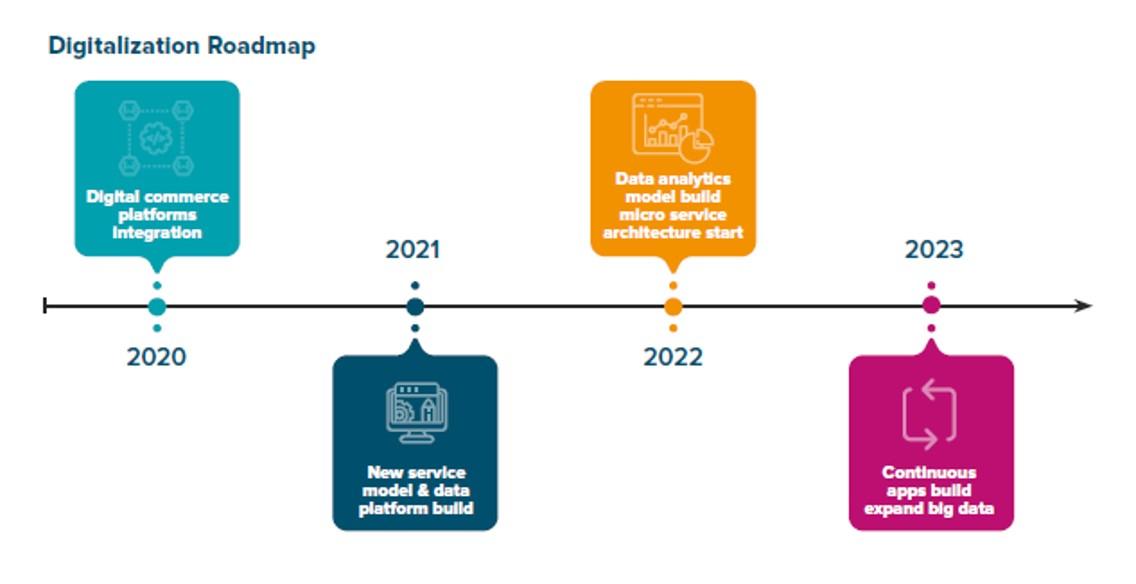
MAINTAINING OUR OPERATIONAL EDGE
High levels of customer satisfaction and service quality cannot be met if we do not execute on-time delivery of our customers’ goods. That, in turn, requires us to achieve the best operational efficiency at sea and on land.
One of the initiatives implemented is the ONE Agile Supply Chain Integrated System (OASIS) which is a centralized inventory management system that uses data analytics to forecast container demand and supply from shippers (export) and consignees (import) so we can optimise our container positioning strategy. It has been implemented in 99% of locations in ONE’s depot network, with realized savings on equipment cost and empty container reposition costs.
Another initiative is our Terminal Partnership Program (TPP), launched in 2018 to partner terminal operators to improve productivity and service reliability through close cooperation on scheduling, stowage planning and equipment deployment. It is now expanded to more than 10 terminals including a number of major terminal operators all over the world.
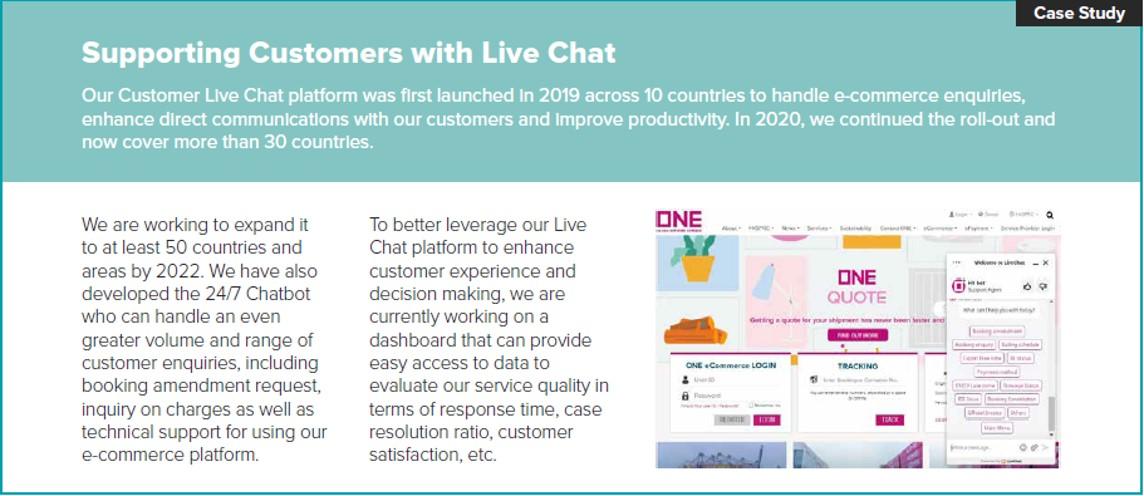
CARGO AND CONTAINER SAFETY
The safe transportation of cargo is fundamental to delivering the highest standards of customer service and enabling a smooth flow of operations. It also protects ship and land crew from unnecessary harm. We ensure safe cargo transportation and operations onboard by enforcing strict safety standards and inculcating safety awareness in our employees and contractors.
ONE’s stringent Vessel Quality Standard (VQS) drives our approach to vessel safety. The VQS ensures high safety standards are maintained on ships, based on requirements for ship safety and quality management systems that are in line with industry standards.
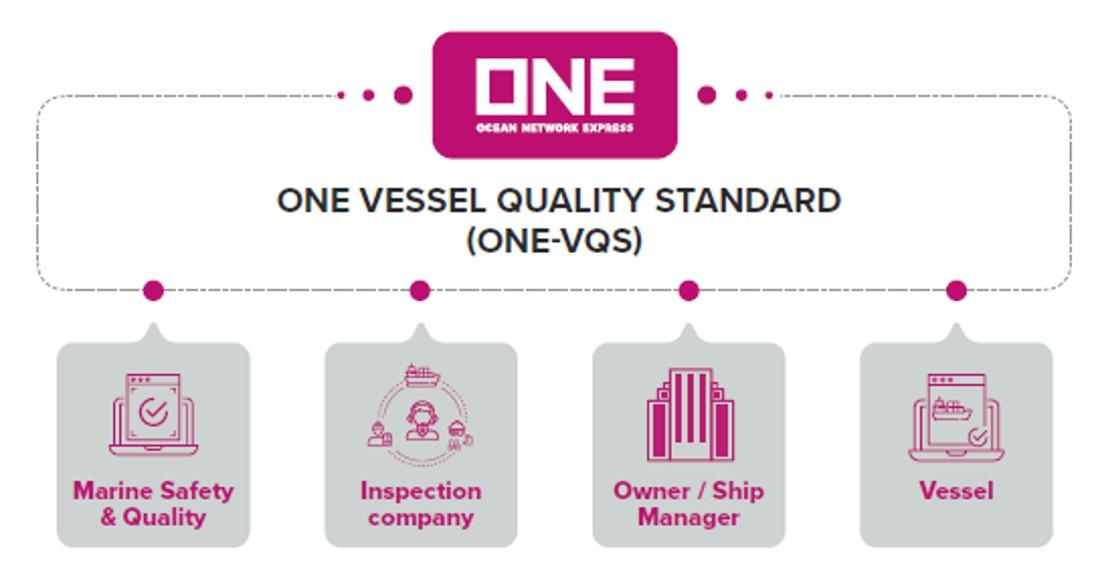
To ensure the safe operation of ships, we developed and implemented an Operational Standard to provide guidance to ship crews on how to manage and respond to issues such as cargo damage, heavy weather, accidents and fires, as well as on safe navigation of areas at high-risk of piracy and conflict zones. Issues such as robbery and theft, unauthorized stowaways, and the smuggling of firearms, drugs, and other illegal contraband are also addressed in the Operational Standard.





